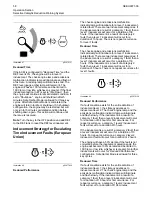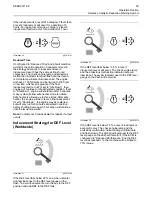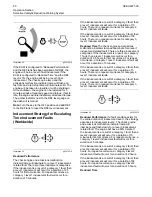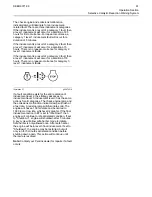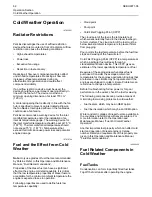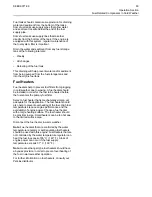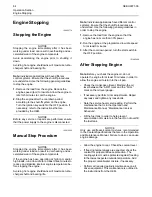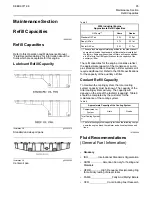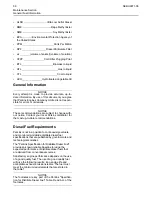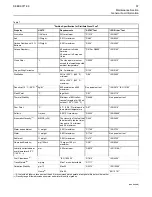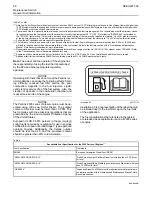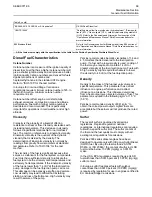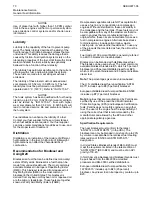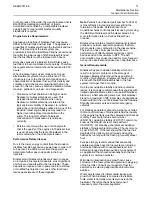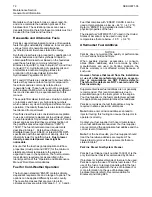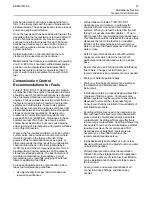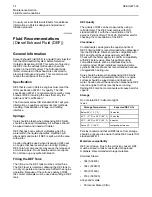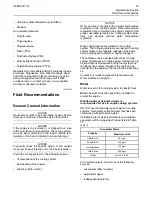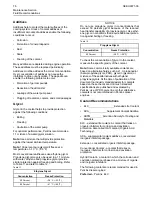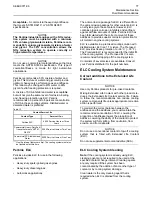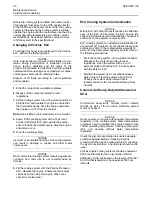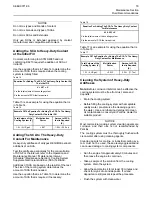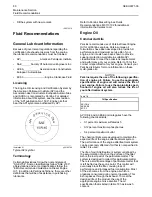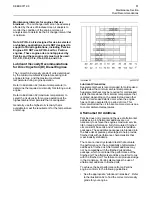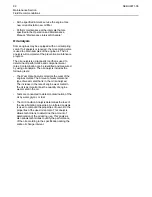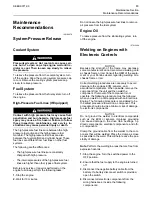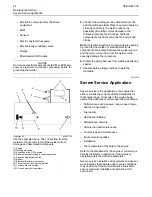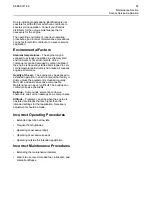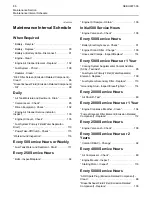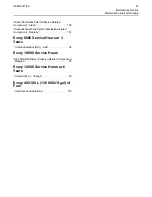
Materials such as brass, bronze, copper, lead, tin,
and zinc accelerate the oxidation process of the
biodiesel fuel. The oxidation process can cause
deposits formation therefore these materials must not
be used for fuel tanks and fuel lines.
Renewable and Alternative Fuels
Perkins supports development and use of renewable
fuels through sustainability initiatives. In recent years
various forms of renewable and alternative
(synthetic) diesel fuels have started to emerge.
Synthetic diesel fuels are produced by gasification of
various feedstock and then synthesis to liquid to
obtain paraffinic diesel fuel. Based on the feedstock
used these fuels are commonly referred to as
Biomass to liquid (BTL), Gas to liquid (GTL) and Coal
to liquid (CTL). Hydrotreating of vegetable oils and
animal fats is another emerging process for
production of bio based diesel fuel called
Hydrotreated Vegetable Oil (HVO).
BTL and HVO fuels are considered to be low carbon
fuels as they reduce carbon foot print compared to
fossil fuels and are commonly referred to as
renewable fuels. These fuels must not be confused
with biodiesel FAME which is fundamentally different
fuel and is discussed in a separate section in this
manual.
These paraffinic diesel fuels have virtually no sulphur
or aromatics and have very high cetane numbers
which enable very clean burning and efficient engine
operation. Chemically these fuels are similar to diesel
fuel derived from petroleum.
Paraffinic diesel fuels are considered as acceptable
to use as a directed replacement to petroleum diesel
or as a blendstock for petroleum diesel fuel in Perkins
diesel engines provided they meet latest edition of
the paraffinic diesel fuel specification “CENTS
15940”. The fuel should also meet requirements
described in table 7 , Perkins Specification for
Distillate Diesel Fuel, EN590, or latest ASTM D975
specification with the exception of density, which is
inherently lower for paraffinic fuels.
Due to lower
density, some rated power loss might be
noticeable.
Ensure that the fuel has got appropriate cold flow
properties (cloud point and CFPP) for the minimum
statistical ambient temperature the engine is
expected to see in the operation. The fuel must also
meet lubricity requirements as specified in the
lubricity section of this “Operation and Maintenance
Manual” Fluid Recommendations
Fuel for Cold-Weather Operation
The European standard “EN590” contains climate
dependant requirements and a range of options. The
options can be applied differently in each country.
There are five classes that are given to arctic
climates and severe winter climates. 0, 1, 2, 3 and 4.
Fuel that complies with “EN590” CLASS 4 can be
used at temperatures as low as −44 °C (−47.2 °F).
Refer to “EN590” for a detailed discretion of the
physical properties of the fuel.
The diesel fuel “ASTM D975 1-D” used in the United
States of America may be used in very cold
temperatures that are below −18 °C (−0.4 °F).
Aftermarket Fuel Additives
NOTICE
Perkins does not warrant the quality or performance
of non-Perkins fluids and filters.
When auxiliary devices, accessories, or consum-
ables (filters, additives) which are made by other
manufacturers are used on Perkins products, the
Perkins warranty is not affected simply because of
such use.
However, failures that result from the installation
or use of other manufacturers devices, accesso-
ries, or consumables are NOT Perkins defects.
Therefore, the defects are NOT covered under the
Perkins warranty.
Supplemental diesel fuel additives are not generally
recommended. This recommendation is due to
potential damage to the fuel system or the engine.
Your fuel supplier or the fuel manufacturer will add
the appropriate supplemental diesel fuel additives.
Perkins recognizes the fact that additives may be
required in some special circumstances.
Note:
Some anti-corrosion additives can lead to
injector fouling, this fouling can cause the injector to
operate incorrectly.
Contact your fuel supplier for those circumstances
when fuel additives are required. Your fuel supplier
can recommend the appropriate fuel additive and the
correct level of treatment.
Note:
For the best results, your fuel supplier should
treat the fuel when additives are required. The
treated fuel must meet the requirements that are
stated in table 7 .
Perkins Diesel Fuel System Cleaner
Perkins Fuel Cleaner (part number
T400012
) is the
only fuel cleaner that is recommended by Perkins.
If biodiesel or biodiesel blends of fuel are to be used,
Perkins require the use of Perkins fuel cleaner. The
use of the fuel is to remove deposits within the fuel
system that is created with the use of biodiesel. For
more information on the use of biodiesel and
biodiesel blends refer to Recommendation for
Biodiesel and Using B20.
72
SEBU9071-06

